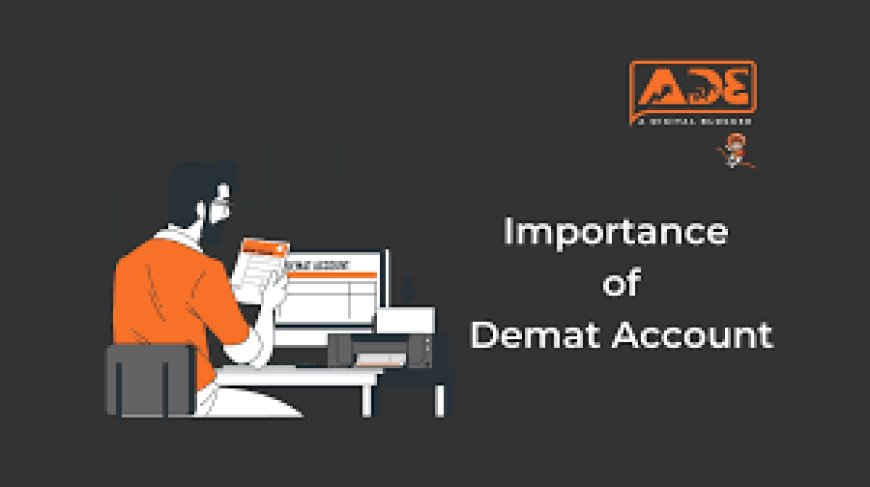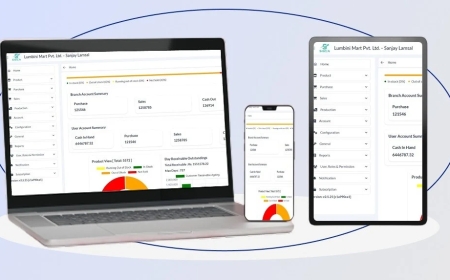The Role of Demat Accounts for Corporate Clients
It is common among retail investors to hold securities electronically using a Demat account, but corporate finance and investment operations also access this medium. Corporate clients

The Role of Demat Accounts for Corporate Clients
Demat accounts are adopted by individual and institutional investors in the evolving world of finance. It is common among retail investors to hold securities electronically using a Demat account, but corporate finance and investment operations also access this medium. Corporate clients, small and others large, comply with regulatory requirements, streamline asset management, and provide smooth trading activities using Demat accounts.
Importance of Demat Accounts for Corporate Clients
1. Investment of Corporations
Companies are always investing in shares or mutual funds as well as bonds and other market instruments. Having a Demat account permits investment management to be centralized with a clean record of holdings and transactions, thus enabling strategic planning and analysis of the portfolio.
2. Security Custodian
Dematerialized accounts are important as secure digital warehouses for all such securities like Shares, Debentures, Government Bonds, and ETFs so that no perils are related to theft, forgery, or loss of such documents.
3. Merger and Acquisition Facilitation
In Demat accounts, securities can be transferred rapidly and traceably across corporate events, such as during a merger, stock split, or even bonus issues. In this context, it can be incredibly valuable when companies are undergoing restructuring or making equity-related transitions.
4. IPO Participation
Firms investing in Initial Public Offerings (IPOs) have to open Demat accounts and receive allotted shares. Sometimes, companies also become anchor investors and require prompt and large-scale transactions that can dematerialize only electronically.
5. Dividend and Interest Management
Dividends, as well as interest and other corporate benefits, are automatically credited through Demat accounts. This practice optimizes the accounting and cash flow management of finance departments.
Opening a Demat Account for a Corporate Entity
Choose a Depository participant (DP) registered with NSDL or CDSL.
Submit corporate documents: Certificate of Incorporation, Memorandum and Articles of Association, board resolution authorizing account opening, PAN card of the company, and KYC documents of authorized signatories.
Sign an agreement with the DP and complete an in-person verification.
Once it is opened, the Demat account functions as an official ledger of all security holdings and transactions carried out by the corporate client.
No-Cost Demat Account Offers and Their Importance
Given this, many financial service institutions presently provide free Demat accounts to lure a potential business audience. Typically speaking, 'free' means waiving the account-opening fee or annual maintenance charge (AMC) for a given period.
For corporate clients, all of these are opportunities to cut down on carrying costs in the future, especially for the emergent companies that want to indulge in capital market activities without incurring such extra fees. However, such companies must first check the total cost of ownership. which may include such expenses as brokerage fees and, in some cases, transaction charges to narrow down their choice of service provider.
It is also worth spending time evaluating other features: online access, reporting tools, trading-platform integration, and quality of customer service. These elements ensure that the Demat account works for the company's overall financial strategy in the long run.
Compliance and Regulatory Issues
The client corporations have to comply with the regulations of the Securities and Exchange Board of India (SEBI) governing Demat accounts. This includes proper disclosures, timely reports, and compliance with anti-money laundering. It also requires regular reconciliation of accounts and audit trails.
Companies listed on stock exchanges also use Demat accounts to track promoter holdings and ensure that their listing conditions are met. This facility becomes important in the case of buybacks, rights issues, or preferential allotments.
Strategic Advantages for Corporate Finance
Holding a Demat account as a corporate entity has both operational and strategic benefits. With digitized records and automation of corporate actions, finance teams can focus on analytics, forecasting, and capital optimization.
Additionally, Demat accounts ensure unhindered transactions with banks, brokers, and financial institutions. That creates an endowed ecosystem that supports treasury operations, hedging strategies, and fundraising efforts through equity issuances.
Conclusion
Demat accounts act as a critical component of the financial infrastructure for corporations as a whole, and certainly not just for individuals. Whether for managing investments, handling compliance, or enabling efficient market participation, these accounts provide real-world utility to business enterprises of all sizes.



























